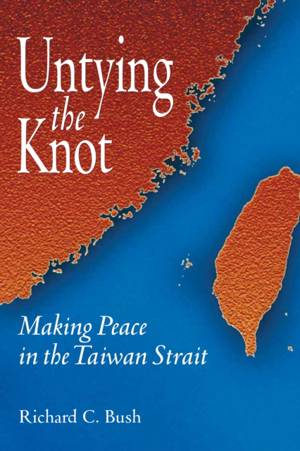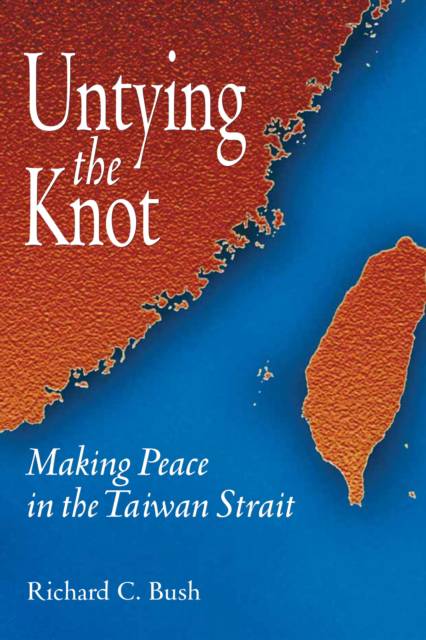
- Retrait gratuit dans votre magasin Club
- 7.000.000 titres dans notre catalogue
- Payer en toute sécurité
- Toujours un magasin près de chez vous
- Retrait gratuit dans votre magasin Club
- 7.000.0000 titres dans notre catalogue
- Payer en toute sécurité
- Toujours un magasin près de chez vous
Description
The relationship between Taiwan and China is a paradox. On the one hand, the two economies are becoming increasingly integrated, as Taiwanese companies have come to regard the mainland as the best place to manufacture their products and maintain global competitiveness. On the other hand, the long-running and changing political dispute between the two governments remains unresolved. Each side fears the intentions of the other and is acquiring military capabilities to deter disaster. In its pursuit of peace in the Taiwan Strait, the United States could get drawn into a war between the two rivals. Richard C. Bush, whose career has been dedicated to Taiwan-China issues, explores the conflicts between these nations and the difficulties that must be resolved. Disagreements over sovereignty and security form the core of the dispute. What would be the legal status and international role of the Taiwan government in a future unified China? Given China's growing military power, how could Taiwan feel secure? Complicating these issues are domestic politics and international competition, as well as misperceptions on both sides. Thus multiple obstacles prevent the two sides from even getting to the negotiating table, much less reaching a mutually acceptable resolution. For reasons of policy and politics, the United States is constrained from a central role. To begin with, it must provide China with some reassurance about its policy in order to secure cooperation on foreign policy issues. At the same time, it must bolster Taiwan's political confidence and military deterrence while discouraging provocative actions. The arcane nature of this dispute severely restricts the role of the United States as conflict mediator. But if there is to be any solution to this conflict, the comprehensive analysis that this book provides will be required reading for effective policy.
"Spécifications
Parties prenantes
- Auteur(s) :
- Editeur:
Contenu
- Nombre de pages :
- 432
- Langue:
- Anglais
Caractéristiques
- EAN:
- 9780815712909
- Date de parution :
- 28-07-06
- Format:
- Livre broché
- Format numérique:
- Trade paperback (VS)
- Dimensions :
- 153 mm x 230 mm
- Poids :
- 612 g

Les avis
Nous publions uniquement les avis qui respectent les conditions requises. Consultez nos conditions pour les avis.






